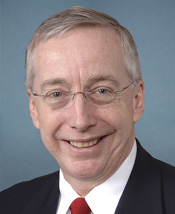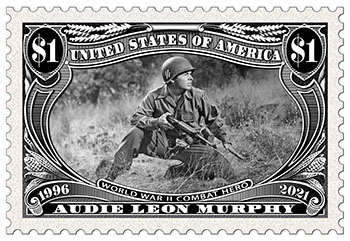67th Anniversary of the Colmar Pocket
Read by the Honorable Geoff Davis
Proceedings and Debates of the 112th Congress, First Session
House of Representatives
|
Mr. DAVIS of Kentucky. Mr. Speaker, I rise
today in recognition of the upcoming 67th anniversary
of the Battle of Colmar Pocket.
The Battle of the Colmar Pocket was fought
between January 22 and February 9, 1945, to
liberate the last major French city occupied by
the German Army. The ferocious preliminary
fighting which formed the Colmar Pocket
began after the arrival of U.S. 7th Army and
1st French Army forces at Strasbourg, north of
Colmar, on November 23rd and Mulhouse,
south of Colmar on November 25th, 1944.
These Armies, under command of the 6th
Army Group under Lieutenant General Jacob
L. Devers, had fought their way through the
Vosges Mountains to reach these cities beginning
in mid-September, and were the first military
force in history to successfully do so.

The 1st French Army, commanded by General
Jean de Lattre de Tassigny, had the mission
to clear the Pocket and liberate Colmar,
destroying the German forces in the Pocket or
driving their remainder across the Rhine. Initially,
the 36th Infantry Division, under Major
General John Dahlquist, arrived at Selestat on
December 4, 1944, fixing the northern shoulder
of the Pocket. Under French command,
the 36th Infantry Division fought its way south
to the vicinity of Kaysersberg, Ostheim,
Mittelwihr, and Bennwihr, in frigid winter
weather, where the division fought off fanatical
German counterattacks launched in support of
the German Ardennes Offensive, the Battle of
the Bulge. In mid-December this stalwart division
was withdrawn from the Colmar sector to
rest and refurbish after its long, debilitating
campaign through the Vosges. For the fighting
to collapse the Pocket, two 36th Infantry Division
soldiers received the Medal of Honor,
Sergeant Ellis R. Weicht and T/SGT Bernard
P. Bell.
Major General Iron Mike O'Daniel's 3rd Infantry
Division then under acting Division
Commander Brigadier General Robert N.
Young, which had also fought its way as part
of 7th Army through the Vosges Mountains to
Strasbourg, was attached to II Corps of the
1st French Army under Major General Aime
de Goislard de Monsabert, and in mid-December
continued the fight to collapse the northern
section of the Pocket, seizing Kaysersberg,
Sigolsheim, Mittelwihr, and Bennwihr and the
dominating high ground of Hill 355 above
Sigolsheim and Hill 216 outside Bennwihr in
the final two weeks of December 1944. For
their intrepid and gallant actions in the fighting
between December 15 and January 21, 1945,
the following 3td Infantry Division soldiers
were awarded the Medal of Honor: 1LT
Charles P. Murray, Jr.; 1LT Eli Whitely; LTC
Keith L. Ware; T/SGT Gus Kefurt; and T/SGT
Russell Dunham.
As this difficult fighting was taking place,
other 1st French Army units were pressing remaining
German units in the Vosges Mountains
at the westernmost extent of the Pocket,
as well as in the south near Mulhouse. The
tough fighting and harsh winter weather had
greatly worn down the French, and it was determined
further U.S. reinforcement was needed
to enable our valiant allies to finally collapse
the Pocket. The first to arrive were the
soldiers of Major General Norman D. Cota's
28th Infantry Division, which had fought hard
in the Bulge. They arrived on January 19th,
taking over the 3rd Infantry Division's sector in
the Kaysersberg valley.
On January 22nd, the 3rd Infantry Division,
now under MG O'Daniel, with attached 254th
Infantry Regiment of the 63rd Infantry Division
and reinforced by a combat command of the
5th French Armored Division, launched the II
Corps main effort to breach enemy defenses
protecting the Colmar Canal and to isolate
Colmar from the Rhine River by seizing the
bridge at Neuf-Brisach. January 22nd found
then Lieutenant Colonel Lloyd B. Ramsey from
Somerset, Kentucky, in command of the 3rd
Battalion, 7th Infantry. He had commanded the
battalion since taking command in the Anzio
beach head in February 1944, and had commanded
it for Operation Dragoon, the invasion
of Southern France, the Southern France
campaign, and through the Vosges. Leading
his battalion across the ill River, through minefields
against dug-in enemy machine gun positions
south of the village of Guemar in a night
attack, Ramsey showed outstanding leadership
and gallantry which led to the award of
the Silver Star. Despite being wounded by
enemy shell fragments, he ensured his battalion
continued advancing in the face of stubborn
resistance, breaking through the enemy
positions and enabling the rest of the division
to drive south.
Ramsey would continue his sterling combat
service and go on to achieve the rank of Major
General, and commanded the AMERICAL Division
in Vietnam from 1969 until 1970. He
was severely injured in a helicopter crash in
Vietnam and eventually was forced to retire for
medical reasons in 1974. MG Ramsey is a
proud son of Kentucky, and a member of the
University of Kentucky Hall of Fame.
The 3rd Infantry Division's dogged attack
and imaginative scheme of maneuver enabled
it to reach and cross the Colmar Canal the
night of January 29-30 after a week of very
heavy fighting. This combat included a serious
incident at the bridge across 111 at the
Maison Rouge where the failure of the bridge
resulted in isolated battalions of the 30th and
15th Infantry Regiments defending unsupported
against severe enemy armored counterattacks.
For actions during January 22nd
through the 26th, two Medals of Honor would
be awarded to 3rd Infantry Division soldiers,
PFC Jose F. Valdez and 2LT Audie L. Murphy.
The XXI Corps, commanded by Major General
Frank W. Milburn, took command of the
3rd Infantry Division, the 28th Infantry Division,
the 75th Infantry Division commanded by
Major General Roy E. Porter, the 5th French
Armored Division, and the 12th Armored Division
commanded by Major General Roderick
C. Allen at the end of January and continued
the attack which succeeded in the 3rd Infantry
Division's seizure of NeufBrisach. The 75th Infantry
Division attacked and protected the 3rd
Infantry Division's west flank. The 28th Infantry
Division launched its attack from the
Kaysersberg valley and cleared the suburbs of
Colmar, enabling units of the French 5th Armored
Division to enter the city on February
2nd. Immediately thereafter, the 12th Armored
Division was committed for a drive south and on February 5th, met French elements advancing
north at Rouffach. French forces completed
the cleansing of the Pocket and destruction
of the enemy's final bridge across the
Rhine at Chalampe on 9 February 9th, 1945.
For this final phase of the fight, one more
Medal of Honor was awarded to the 3rd Infantry
Division's T/5 Forrest E. Peden.
The Battle of the Colmar Pocket, overshadowed
by the Battle of the Bulge to the
north, saw some of the bitterest fighting of the
war and resulted in the award of the Presidential
Unit Citation to the entire 3rd Infantry
Division with its attachments, as well as the
award of the fourrage`re of the Croix de Guerre
embroidered Colmar. The 109th Infantry Regiment
of the 28th Infantry Division was also
awarded the fourragere.
Mr. Speaker, I ask the House to join me in
congratulating and thanking the surviving veterans
of the Battle of the Colmar Pocket on
the upcoming 67th anniversary of this battle
which liberated Colmar and cleared the Germans
from southern Alsace. I especially would
like to express my thanks and admiration to
Major General Ramsey for his outstanding
combat leadership at Colmar and throughout
his illustrious military career.
|







